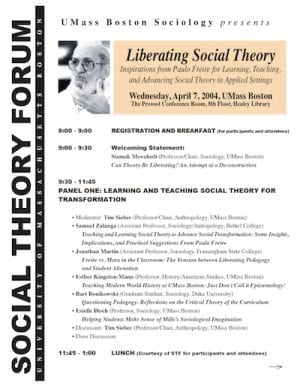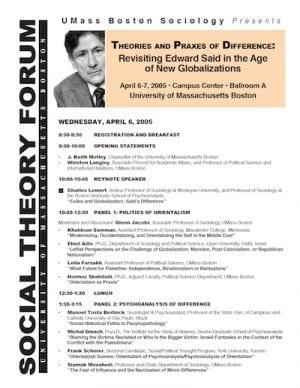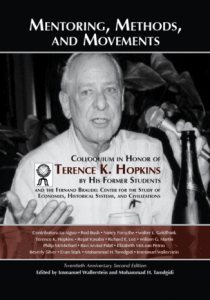Proceedings Journal Article — Helping Students Make Sense of Mills’ Sociological Imagination — by Estelle Disch
$15.00
Wright Mills is one of my favorite sociological theorists and one whose work relates very easily to all of the courses that I teach. His definition of a sociological imagination connects nicely to all students’ lives, once they can grasp his ideas. The key ideas of Mills that I like most to teachinclude the link between biography and history and the difference between personal troubles and public issues. Moving from text to students’ understanding, however, is no simple task.
Description
Abstract
Wright Mills is one of my favorite sociological theorists and one whose work relates very easily to all of the courses that I teach. His definition of a sociological imagination connects nicely to all students’ lives, once they can grasp his ideas. The key ideas of Mills that I like most to teachinclude the link between biography and history and the difference between personal troubles and public issues. Moving from text to students’ understanding, however, is no simple task. To me, Mills’ ideas seem relatively easy and straightforward, once his extraneous words are filtered out.To students, however, the ideas are very challenging. I attribute the difficulty that students have with Mills to three things: (1) His writing style isdense, repetitive, and at times difficult; (2) Students are not very conscious of the larger historical trends that affect their lives; and (3) The distinction between a personal trouble and a public issue can seem confusing. In this paper I describe the pedagogical strategies that I use to address each of these difficulties.
Recommended Citation
Disch, Estelle. 2004. “Helping Students Make Sense of Mills’ Sociological Imagination.” Pp. 51-54 in Liberating Social Theory: Inspirations from Paulo Freire for Learning, Teaching, and Advancing Social Theory in Applied Settings: Proceedings of the First Annual Social Theory Forum, April 7, 2004, UMass Boston (Discourse of Sociological Practice, Vol. 6, Issues 2, Fall 2004). Issue Guest Editor: Mohammad H. Tamdgidi. Sociology Department, UMass Boston.
Read the Above Publication Online
To read the above publication online, you need to be logged in as an OKCIR Library member with a valid access. In that case just click on the large PDF icon below to access the publication. Make sure you refresh your browser page after logging in.







